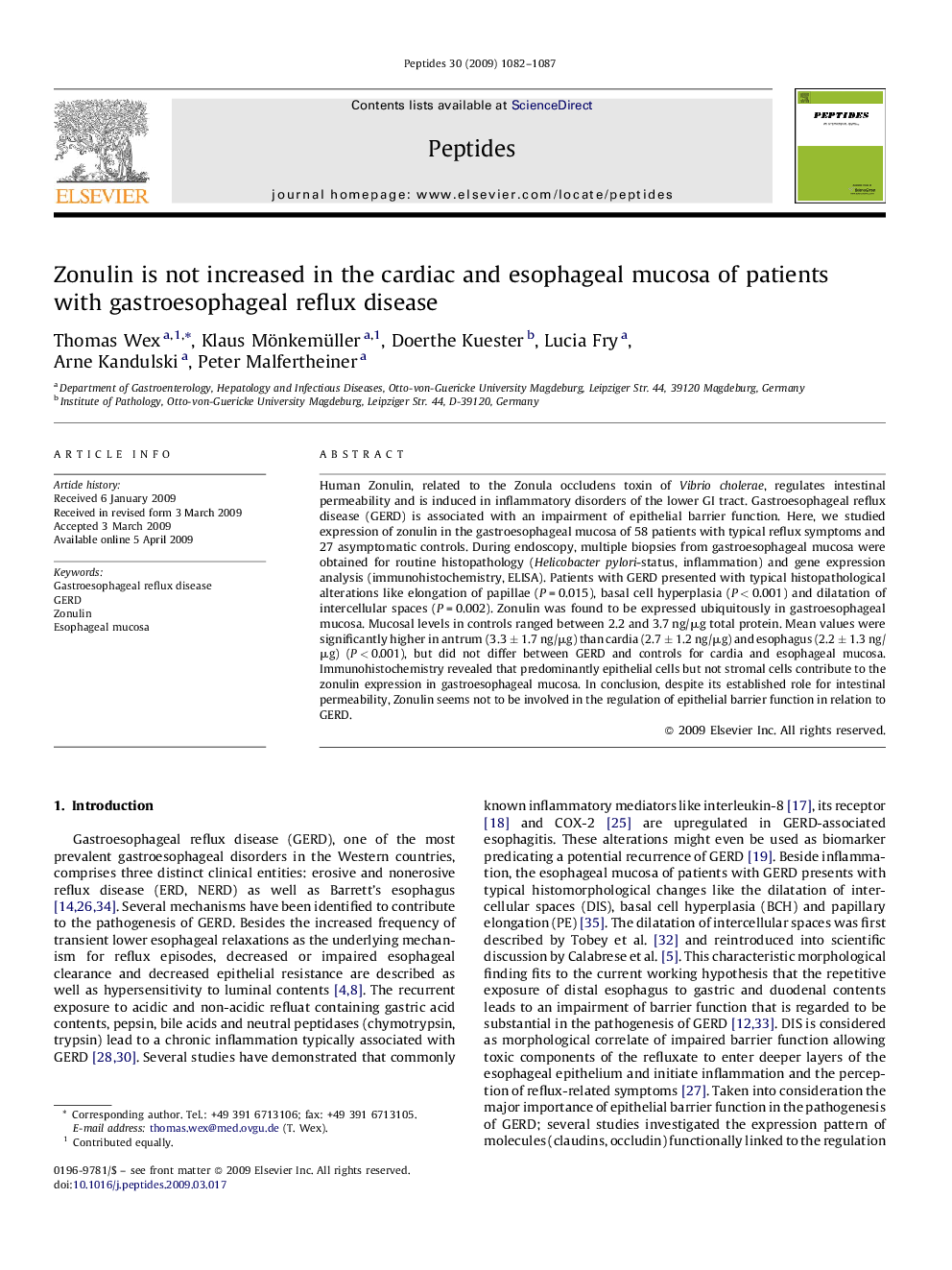| Article ID | Journal | Published Year | Pages | File Type |
|---|---|---|---|---|
| 2006848 | Peptides | 2009 | 6 Pages |
Abstract
Human Zonulin, related to the Zonula occludens toxin of Vibrio cholerae, regulates intestinal permeability and is induced in inflammatory disorders of the lower GI tract. Gastroesophageal reflux disease (GERD) is associated with an impairment of epithelial barrier function. Here, we studied expression of zonulin in the gastroesophageal mucosa of 58 patients with typical reflux symptoms and 27 asymptomatic controls. During endoscopy, multiple biopsies from gastroesophageal mucosa were obtained for routine histopathology (Helicobacter pylori-status, inflammation) and gene expression analysis (immunohistochemistry, ELISA). Patients with GERD presented with typical histopathological alterations like elongation of papillae (P = 0.015), basal cell hyperplasia (P < 0.001) and dilatation of intercellular spaces (P = 0.002). Zonulin was found to be expressed ubiquitously in gastroesophageal mucosa. Mucosal levels in controls ranged between 2.2 and 3.7 ng/μg total protein. Mean values were significantly higher in antrum (3.3 ± 1.7 ng/μg) than cardia (2.7 ± 1.2 ng/μg) and esophagus (2.2 ± 1.3 ng/μg) (P < 0.001), but did not differ between GERD and controls for cardia and esophageal mucosa. Immunohistochemistry revealed that predominantly epithelial cells but not stromal cells contribute to the zonulin expression in gastroesophageal mucosa. In conclusion, despite its established role for intestinal permeability, Zonulin seems not to be involved in the regulation of epithelial barrier function in relation to GERD.
Related Topics
Life Sciences
Biochemistry, Genetics and Molecular Biology
Biochemistry
Authors
Thomas Wex, Klaus Mönkemüller, Doerthe Kuester, Lucia Fry, Arne Kandulski, Peter Malfertheiner,
